NBA Draft Steals
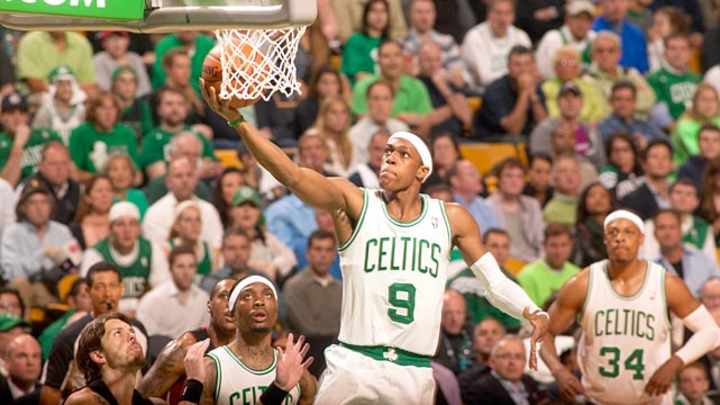
NBA Draft Steals
Rajon Rondo, Celtics

Michael Jordan (third pick in 1984) and Larry Bird (sixth pick in 1978) easily could headline this list, but the focus here is on high-impact players chosen in the middle of the first round or later. The list is in reverse chronological order. Rondo has emerged as one of the top point guards in the NBA despite his lack of shooting range. He quarterbacked the Celtics to the 2008 title in his first season as a full-time starter, and since then he's made three All-Star teams, been a fixture on the All-Defensive team and led the league in assists (11.7 in 2011-12).
Carlos Boozer, Cavaliers
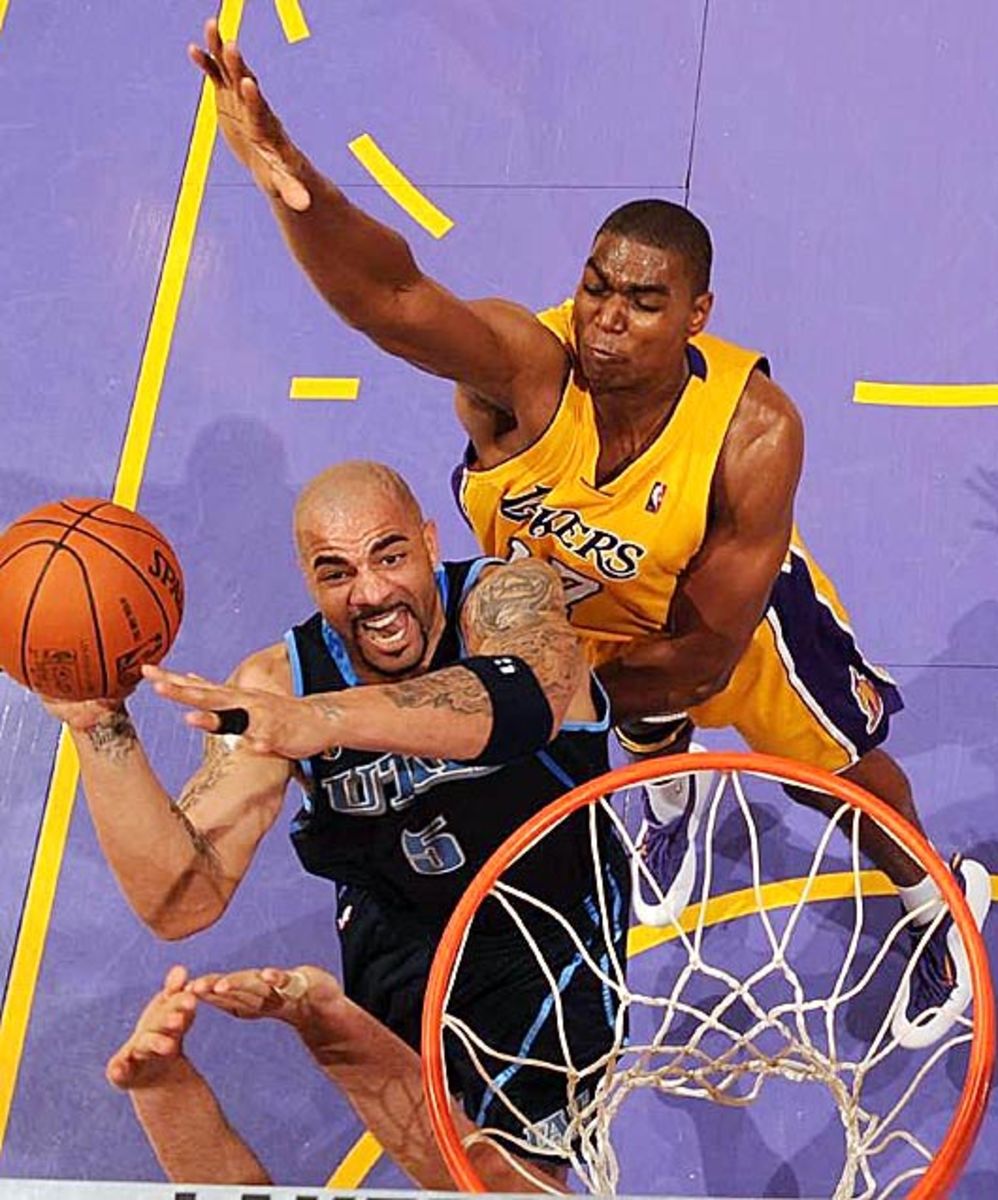
When healthy, Boozer is a 20-and-10 player who went from overlooked in 2002 to an Olympic gold medalist with Team USA six years later. Before the burly power forward -- who played his first two seasons in Cleveland -- left Utah for Chicago in 2010, the Jazz's frontcourt featured a foursome of draft steals: Boozer, Andrei Kirilenko (No. 24 in 1999), Mehmet Okur (No. 38 in 2001) and Paul Millsap (No. 47 in 2006).
Tony Parker, Spurs
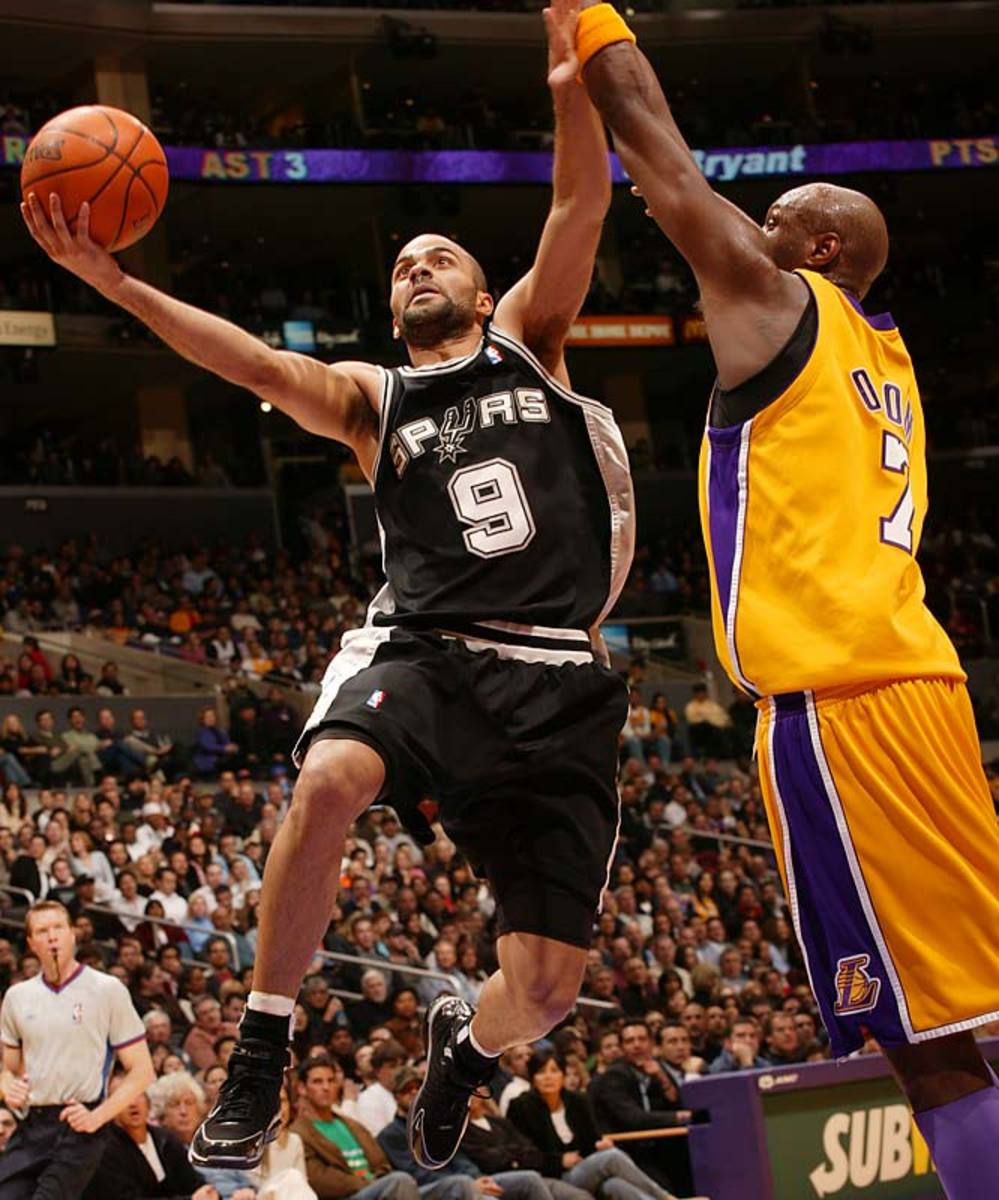
Parker cracked the starting lineup as a 19-year-old rookie and has been entrenched at the point guard position ever since. The Frenchman has won three titles, made four All-Star teams and been named the Finals MVP.
Gilbert Arenas, Warriors
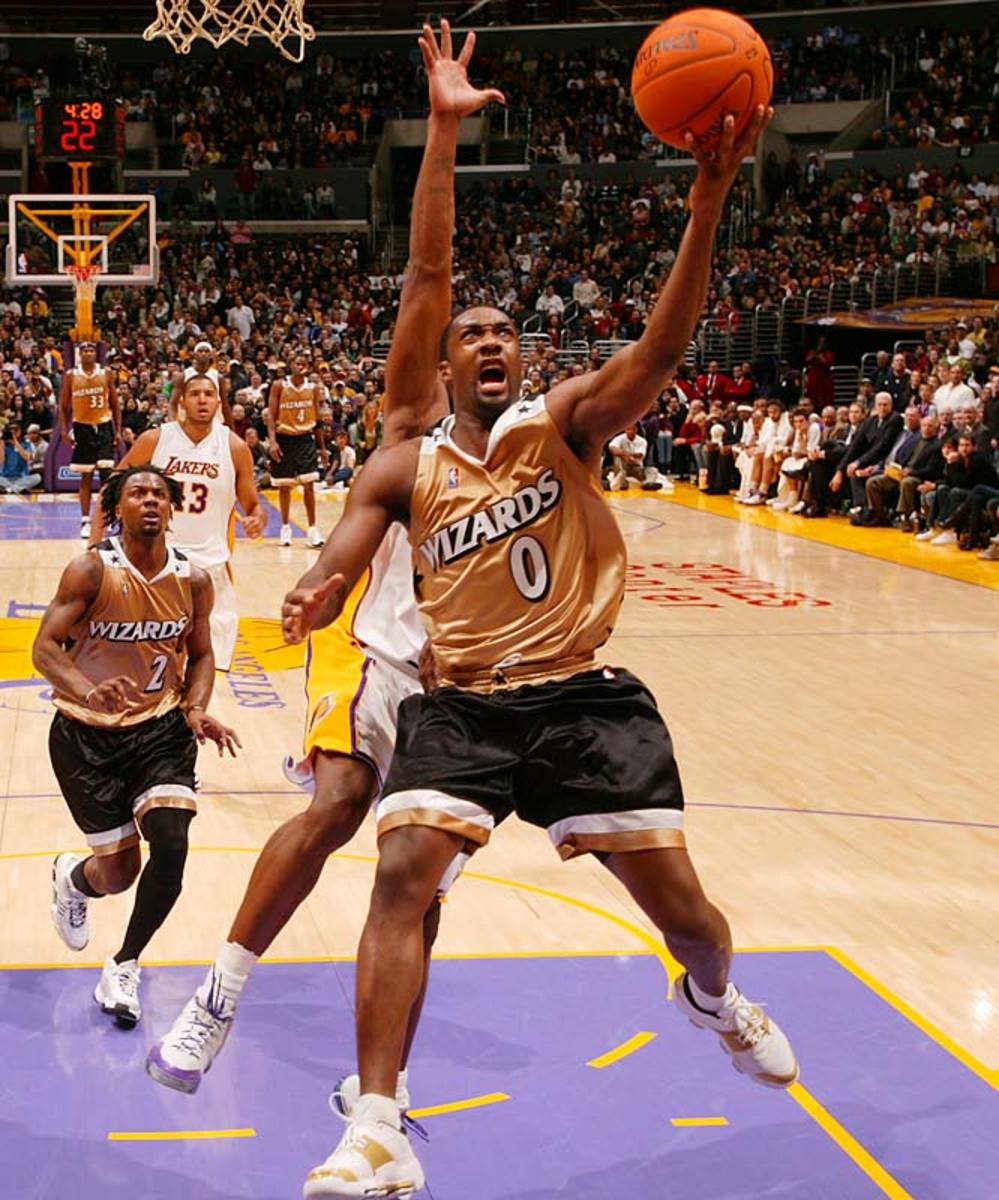
The Warriors' payoff for landing this explosive scorer was short-lived: After a breakout 2002-03 season in Golden State in which the quirky guard was honored as Most Improved Player, Arenas signed a six-year, $65 million free-agent deal with Washington, where he averaged at least 25 points in three consecutive seasons before struggling through back-to-back injury-plagued seasons. It got worse for Arenas in 2009-2010 when he was suspended for bringing unloaded guns into the Wizards' locker room. Arenas is still trying to regain his form after being ineffective the last two seasons in Washington, Orlando and Memphis.
Michael Redd, Bucks
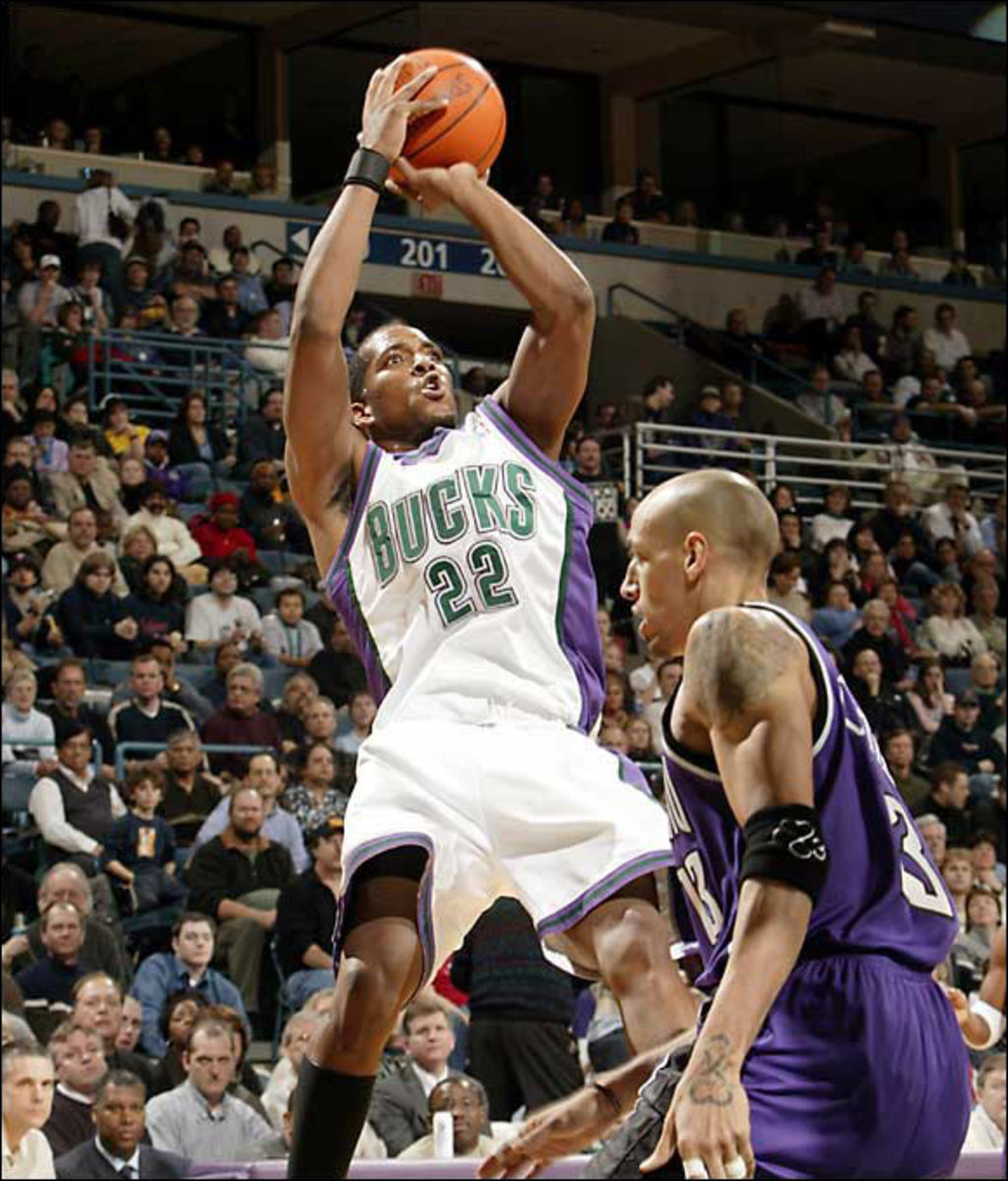
Hard to believe that this lanky, left-handed shooter with a Big Ten pedigree could last until the 43rd pick in one of the worst drafts in recent memory. Known for having one of the game's quickest releases, Redd improved his scoring average in each of his first seven seasons, peaking at 26.7 points a game in 2006-07. A string of knee injuries has derailed him in recent seasons.
Manu Ginobili, Spurs
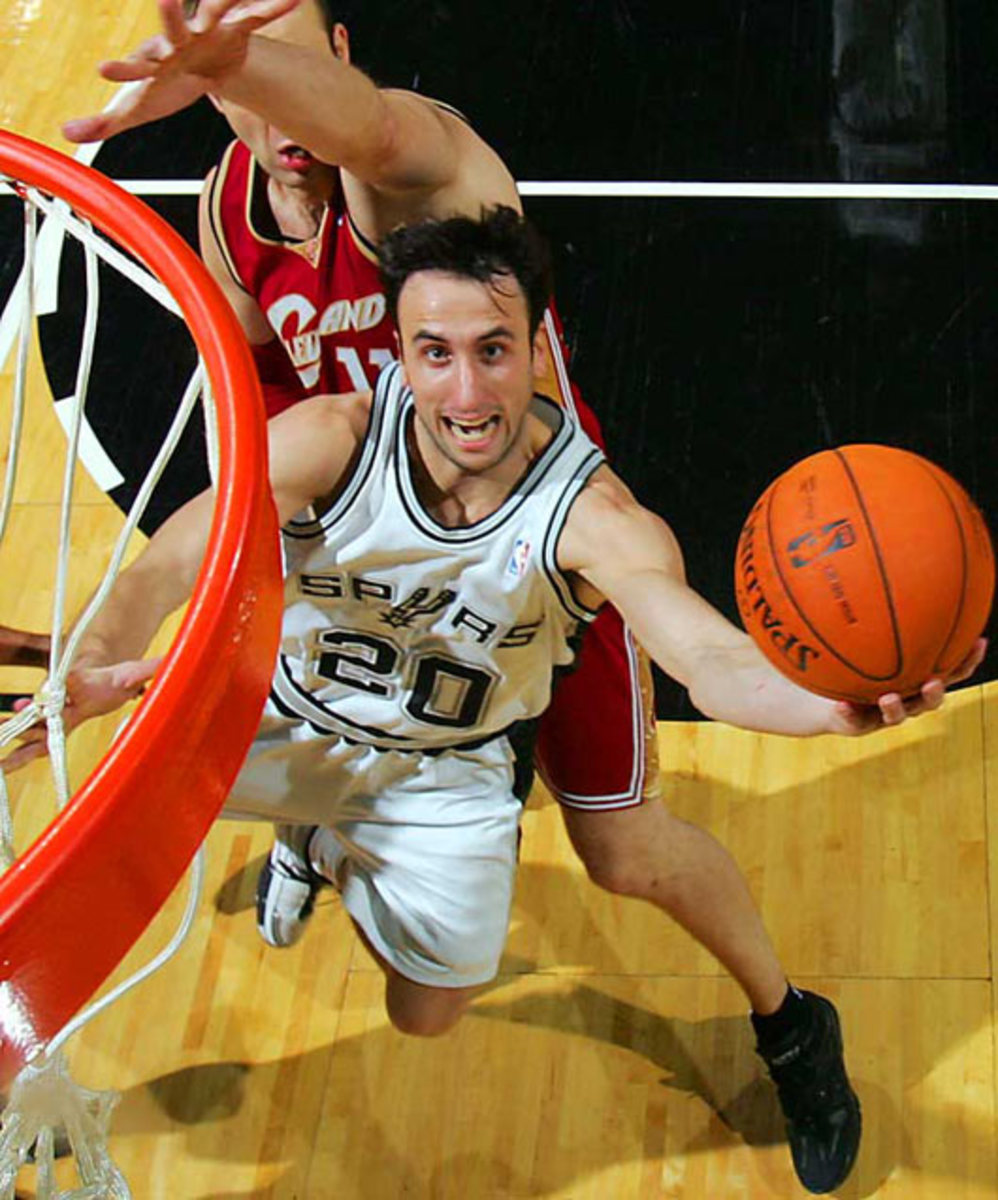
The Spurs found a future three-time NBA champion, league All-Star and fearless clutch scorer with the second-to-last pick in the draft.
Rashard Lewis, SuperSonics
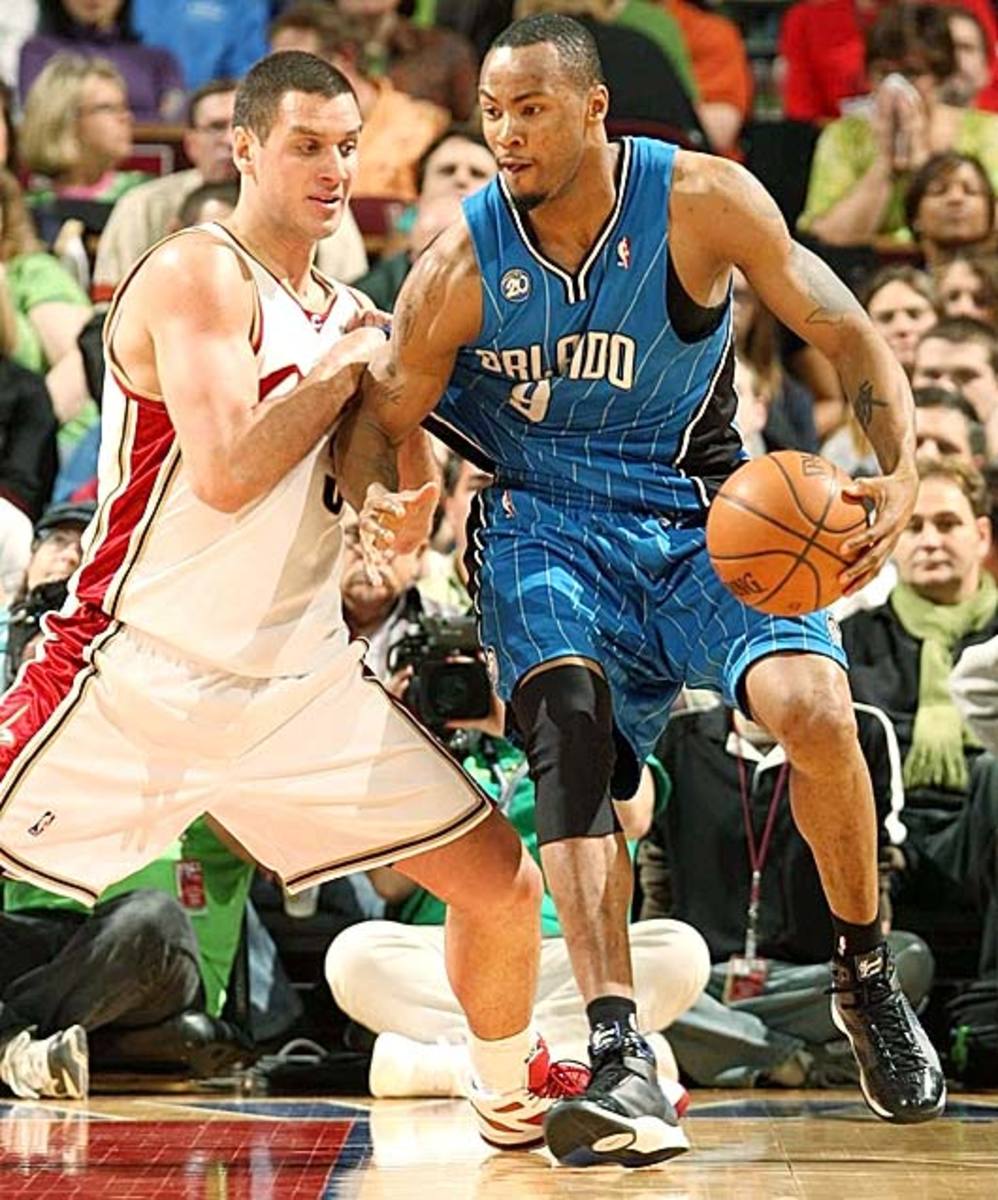
The 6-10 forward out of Houston's Alief Elsik High School cried on draft night when his hometown Rockets passed on him three times before Seattle nabbed him. Since then he has made two All-Star teams, averaged at least 20 points in three different seasons and signed a $100-plus-million contract with Orlando. He was traded to the Wizards in December 2010, and Washington dealt him to New Orleans in June 2012.
Kobe Bryant, Hornets
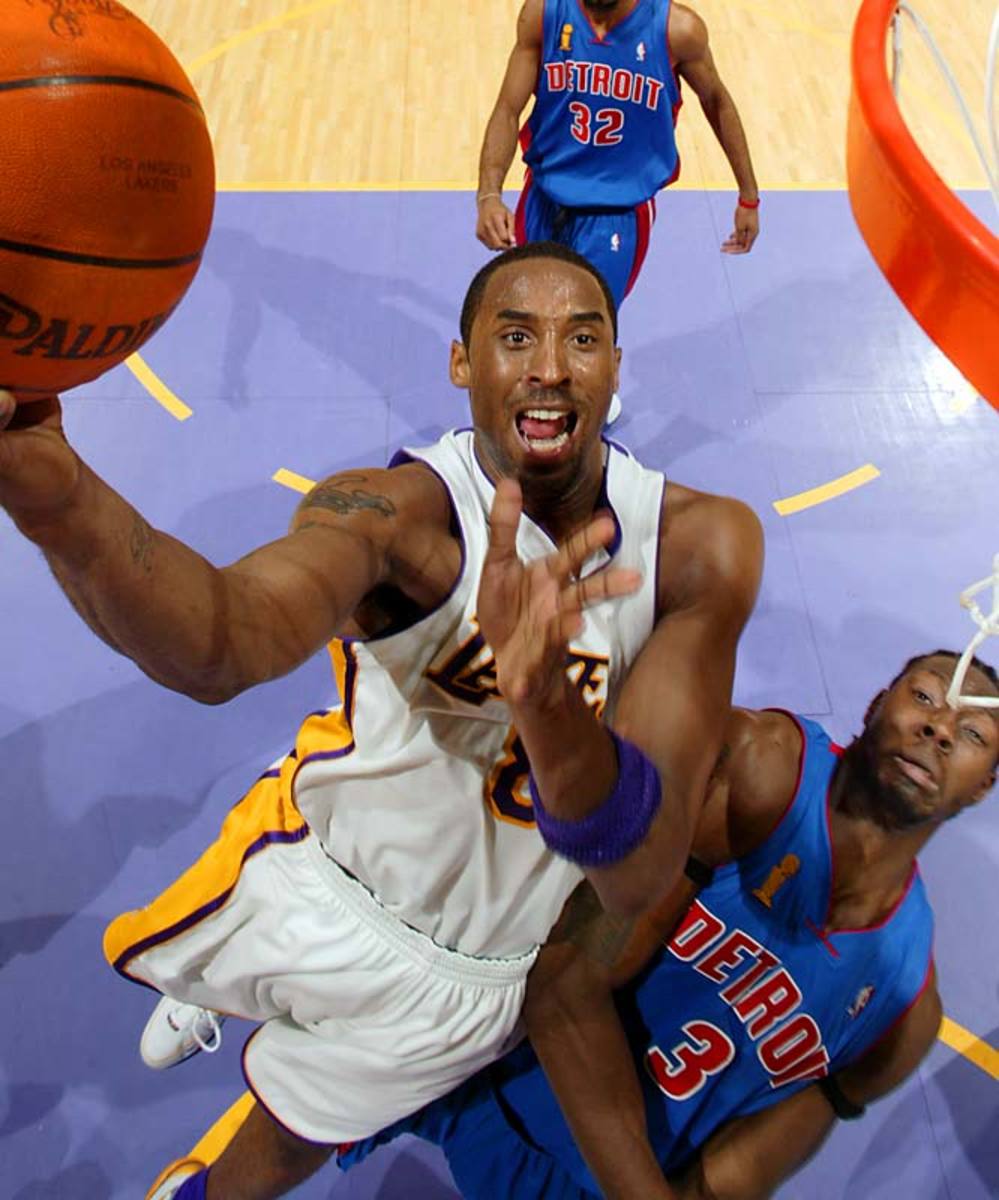
He would have gone higher if not for some predraft machinations. The Nets seriously entertained picking Kobe at No. 8, but they reportedly backed off after word spread through Bryant's agent that the Philadelphia prep star wouldn't play for them. Instead, in a prearranged deal, the Lakers acquired Bryant from Charlotte for center Vlade Divac, a swap that helped them clear enough salary-cap space to sign free agent Shaquille O'Neal later that offseason. And the Nets? They took Kerry Kittles with their pick.
Steve Nash, Suns
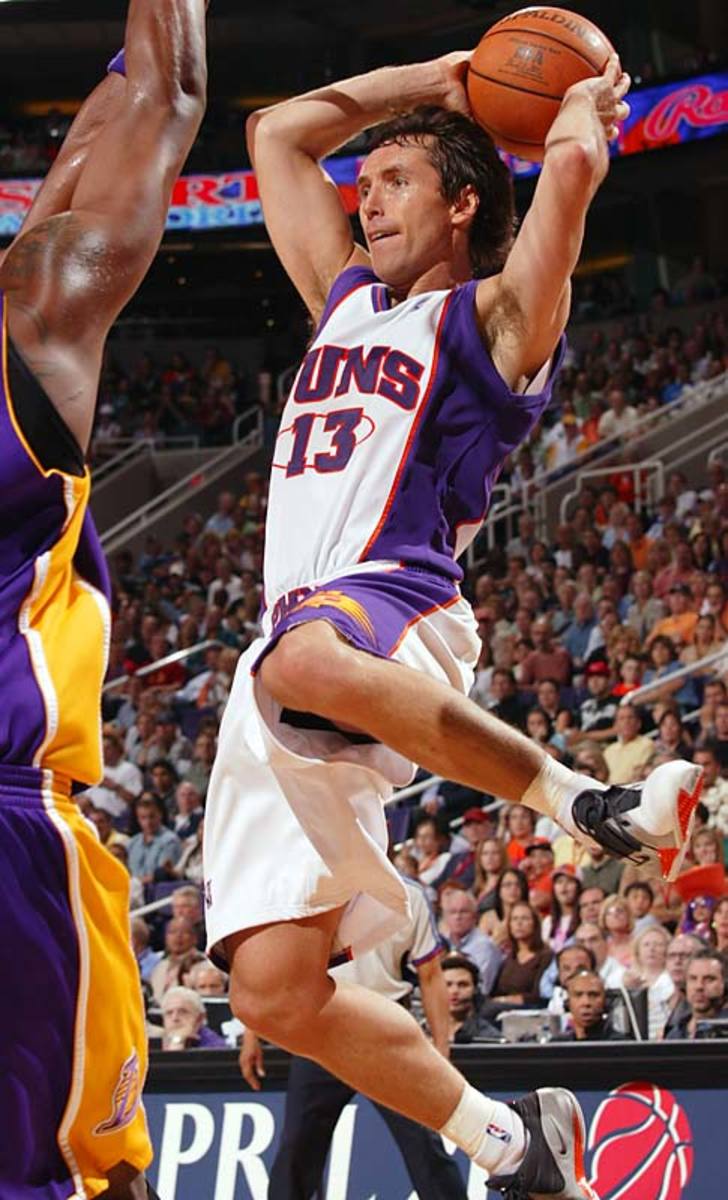
Phoenix fans booed the pick on draft night. Mavs fans later booed Nash when he struggled in his first two seasons in Dallas after being acquired in a trade. All Nash has done since is win two MVP awards and lead the Suns to three Western Conference finals.
Sarunas Marciulionis, Warriors
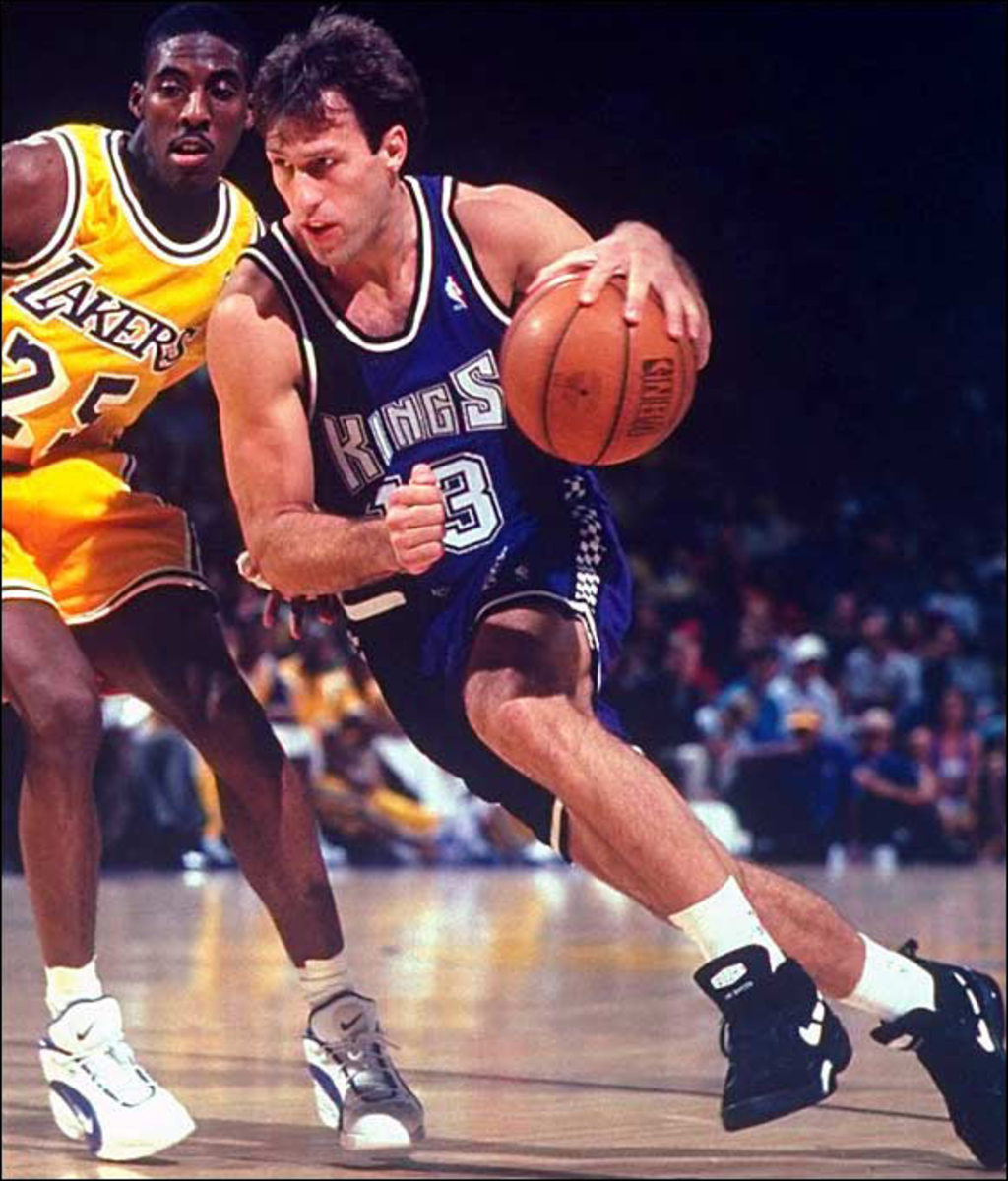
The mold for Manu Ginobili. Hamstrung by injuries and a dogged willingness to literally leave his body on the floor, Marciulionis played only 363 games in eight seasons. But his athletic, hard-nosed style helped to quash the stereotype of the passive European role player. He is easily the greatest 127th pick in NBA history.
Dennis Rodman, Pistons
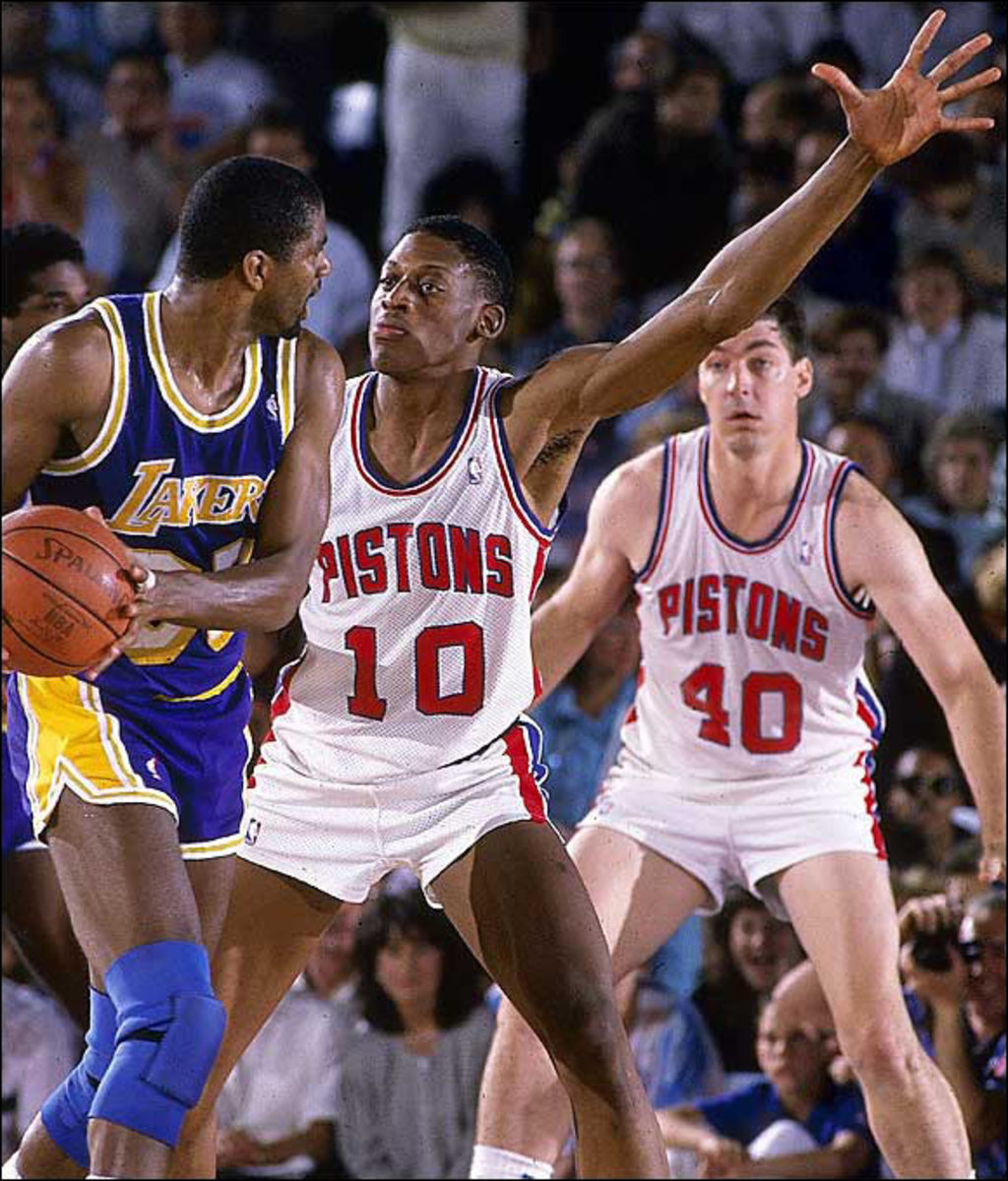
Unheralded out of NAIA's Southeastern Oklahoma State, the 6-foot-8 Rodman led the NBA in rebounding seven consecutive years from 1992-1998. He also won five championships (two with Detroit and three with Chicago) and was named Defensive Player of the Year twice. Rumor has it that the Hall of Famer was a colorful character, too.
Drazen Petrovic, Trail Blazers
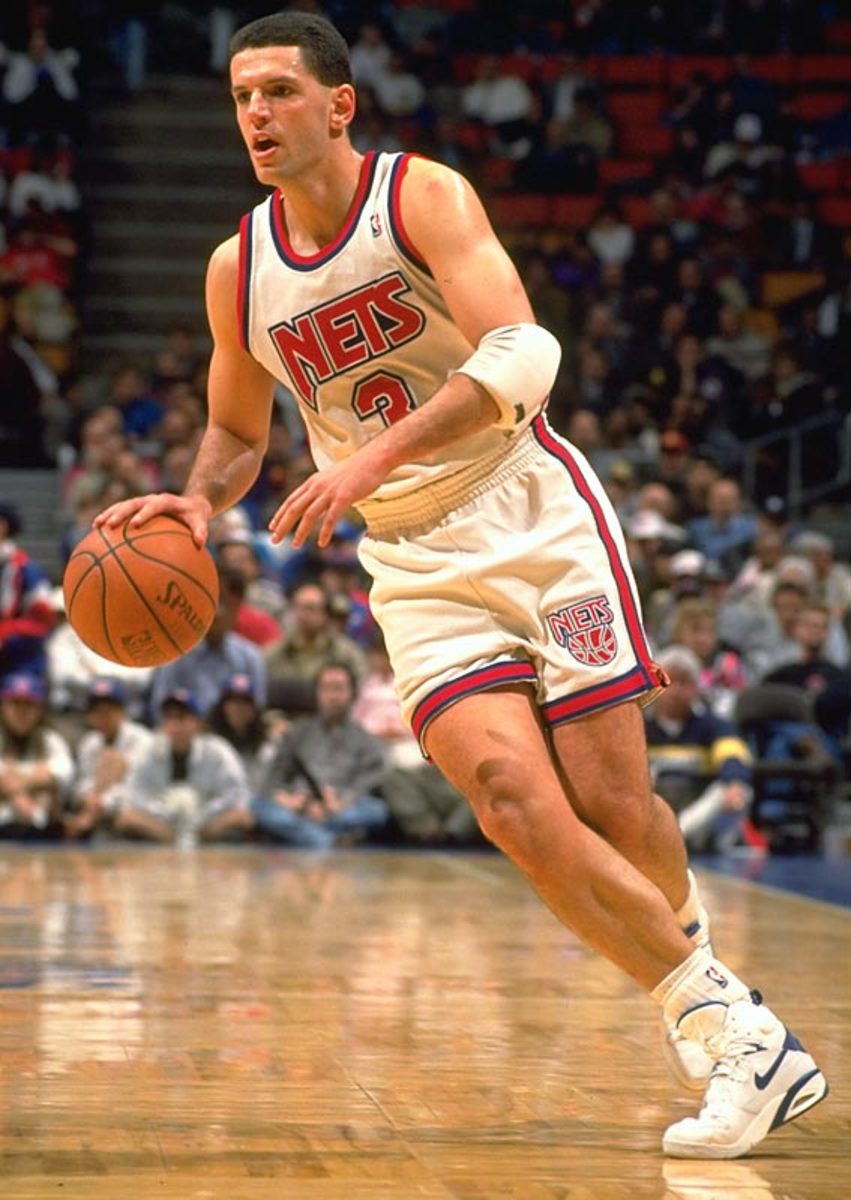
In the same draft in which it nabbed internationally renowned big man Arvydas Sabonis at No. 24, Portland selected this Croatian guard who starred for Real Madrid in Spain before arriving in the NBA in 1989. The former Blazer and Net played four NBA seasons, averaging 15.4 points on 50.6 percent shooting, before he was killed in a car accident in 1993. Petrovic was inducted into the Hall of Fame in 2002.
Mark Price, Mavericks
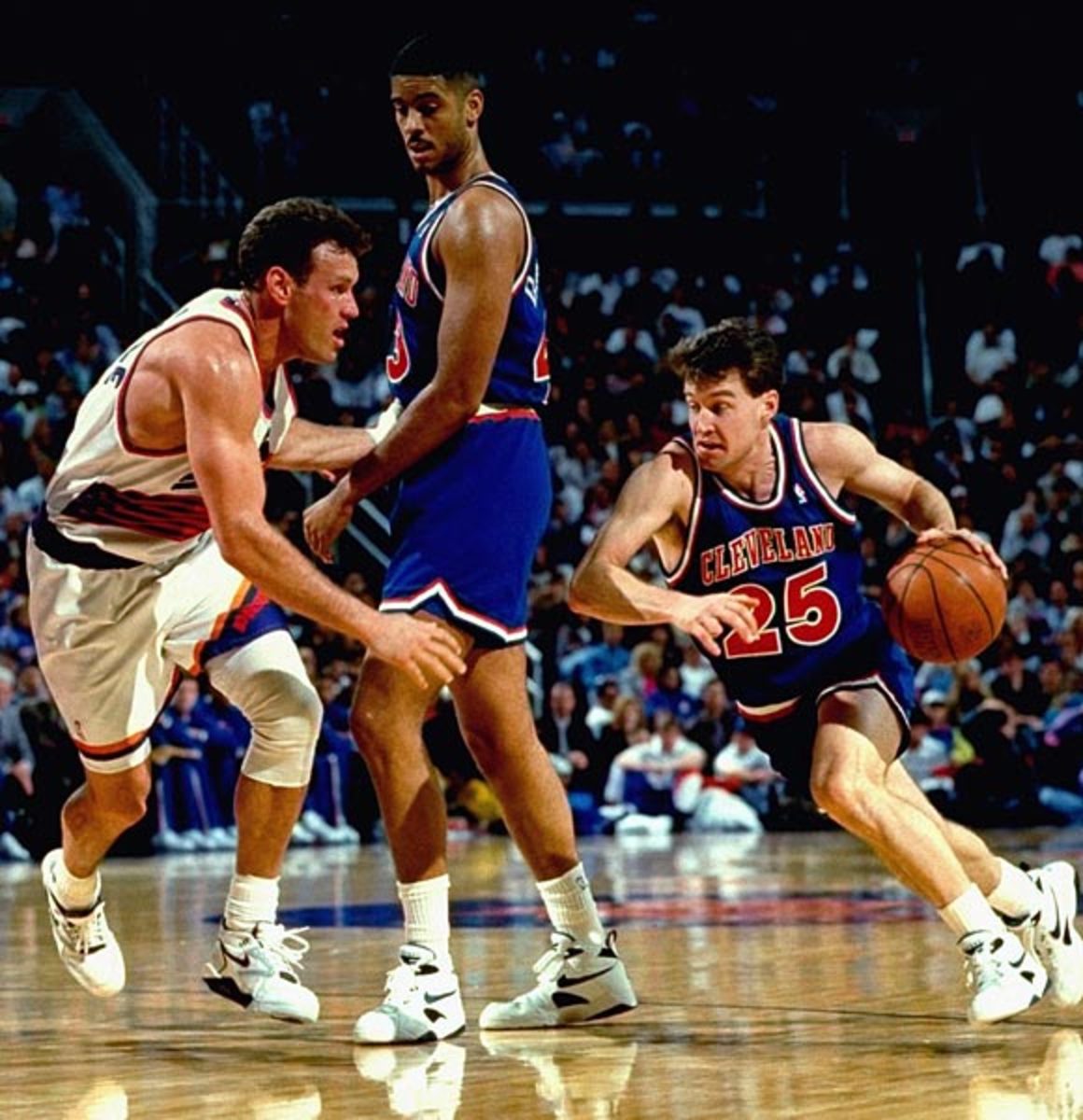
In the same draft that produced steals like Dennis Rodman, Drazen Petrovic, Arvydas Sabonis and Jeff Hornacek, Price paid off big as the first pick of the second round. Cleveland acquired the 6-foot point guard in a draft-night trade with Dallas, and Price joined the No. 1 pick that year, Brad Daugherty, in forming the core of a team that won at least 50 games three times in the late 1980s and early 1990s. Price made four All-Star teams and four All-NBA teams, averaged 15.2 points and 6.7 assists and shot 47.2 percent from the field, 40.2 percent from three-point range and 90.4 percent from the free-throw line.
Karl Malone, Jazz
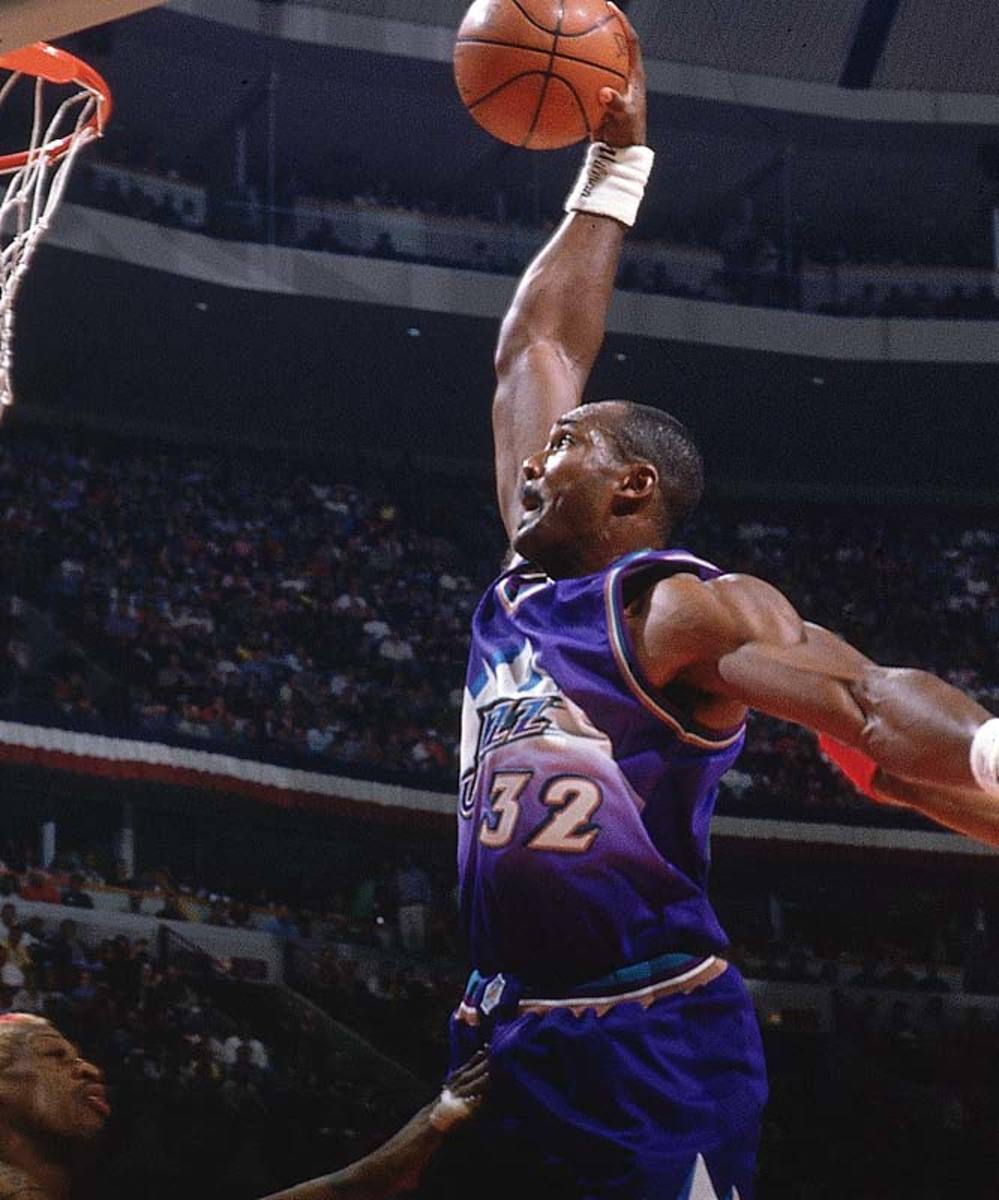
A year after getting John Stockton with the 16th pick, the Jazz secured this diamond in the rough from Louisiana Tech who worked himself into the best player he could be -- good enough to become a two-time MVP and the league's second all-time leading scorer.
Joe Dumars, Pistons
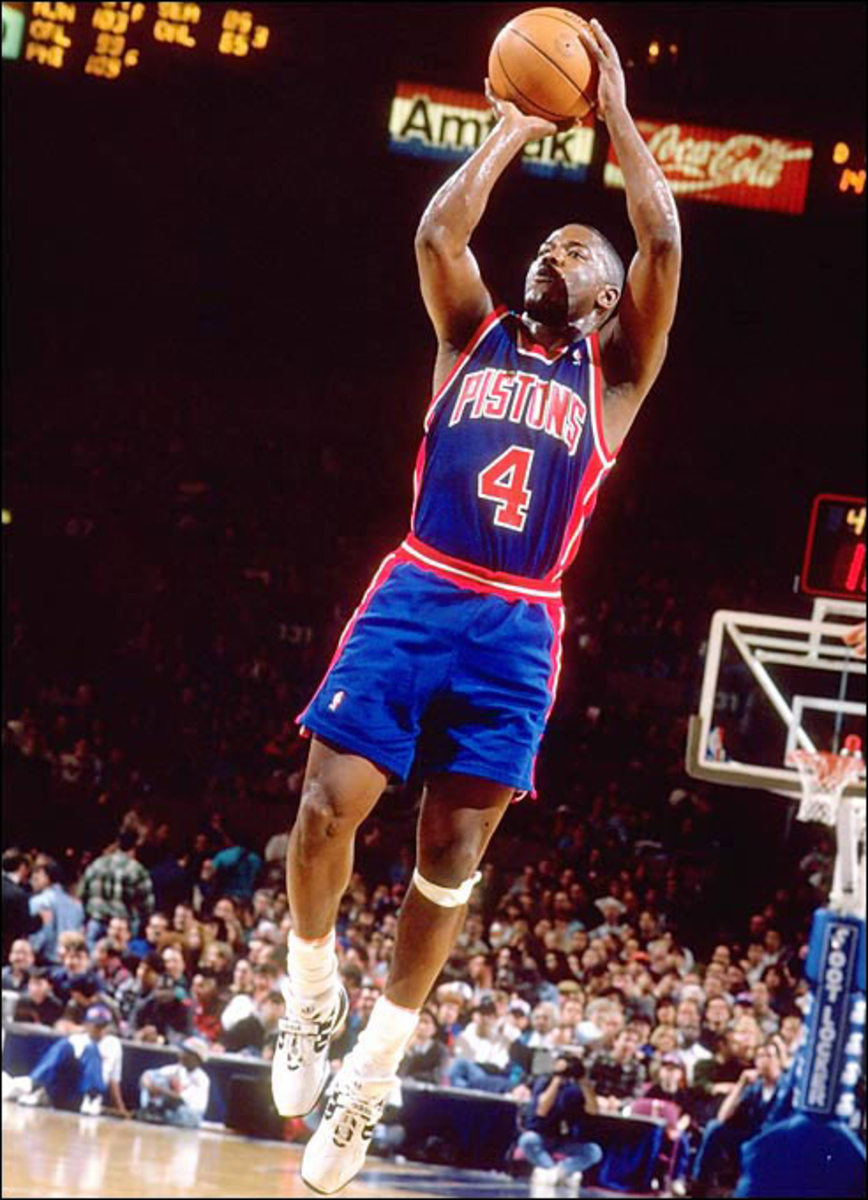
Taken out of tiny McNeese State, Dumars grew into a six-time All-Star, the 1989 Finals MVP and a Hall of Fame shooting guard. Not only did he provide Pistons coach Chuck Daly a steady locker-room presence on a roster filled with guys who weren't afraid to stir emotions, but Dumars also remained to tutor a far less talented generation of Pistons on how to act and play like professionals. Not bad for the guy selected one pick after Uwe Blab.
John Stockton, Jazz
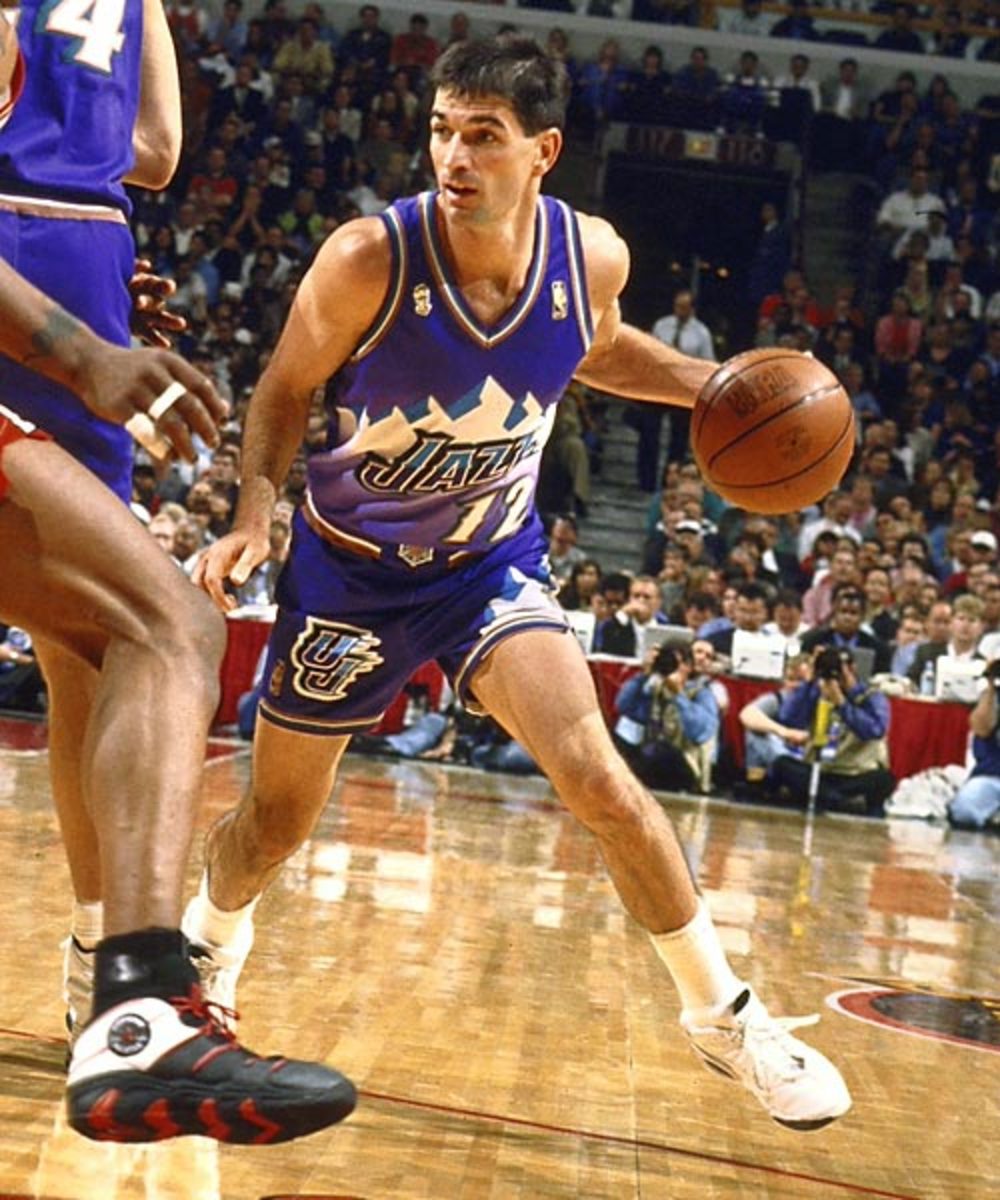
Utah couldn't have asked for much more: At No. 16, it secured the NBA's all-time leader in assists and steals.
Clyde Drexler, Trail Blazers
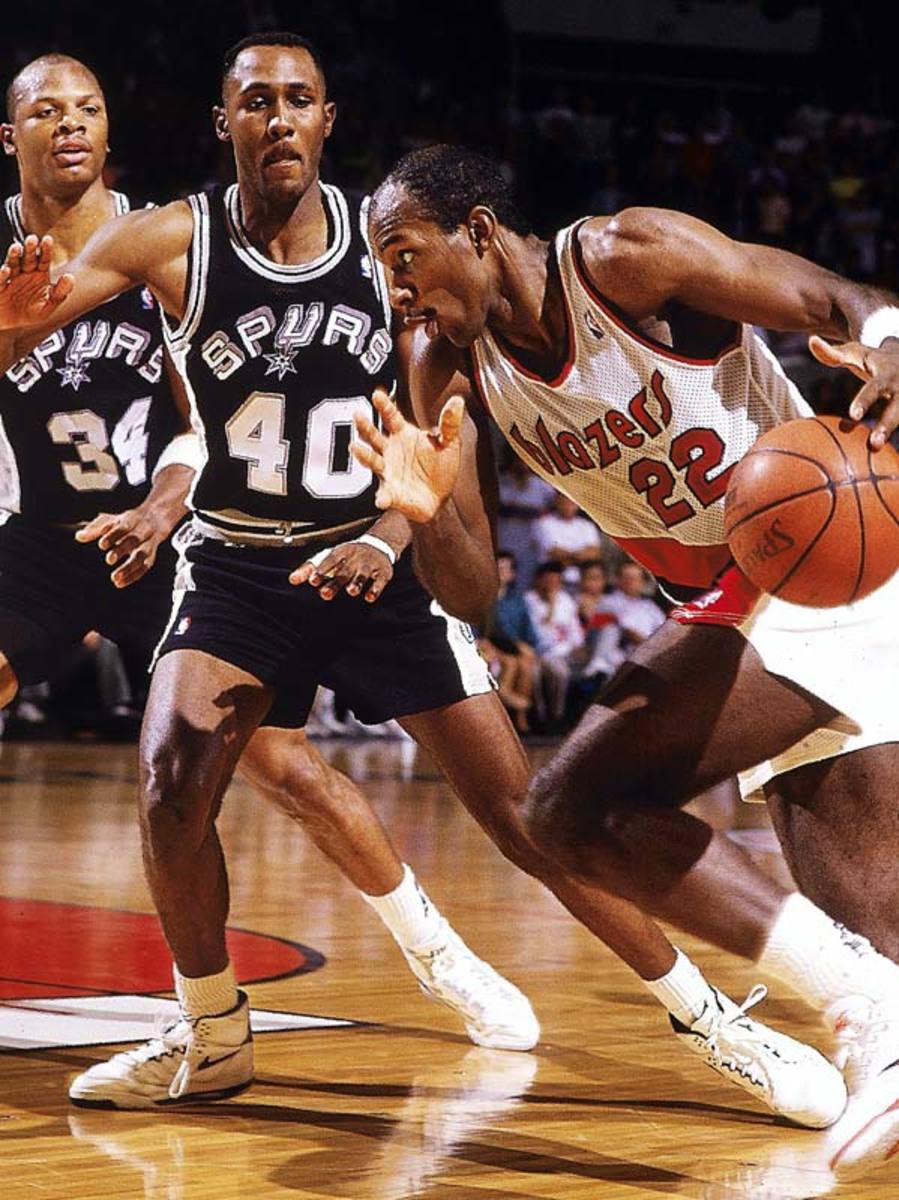
He turned out to be the best player in his draft. He lasted to this spot because his Phi Slamma Jamma years in college created the mistaken impression that he was a one-dimensional dunker, but he turned into a skilled and versatile Hall of Fame scorer who helped his former University of Houston teammate Olajuwon win a championship with the Rockets in 1995.
Michael Cooper, Lakers
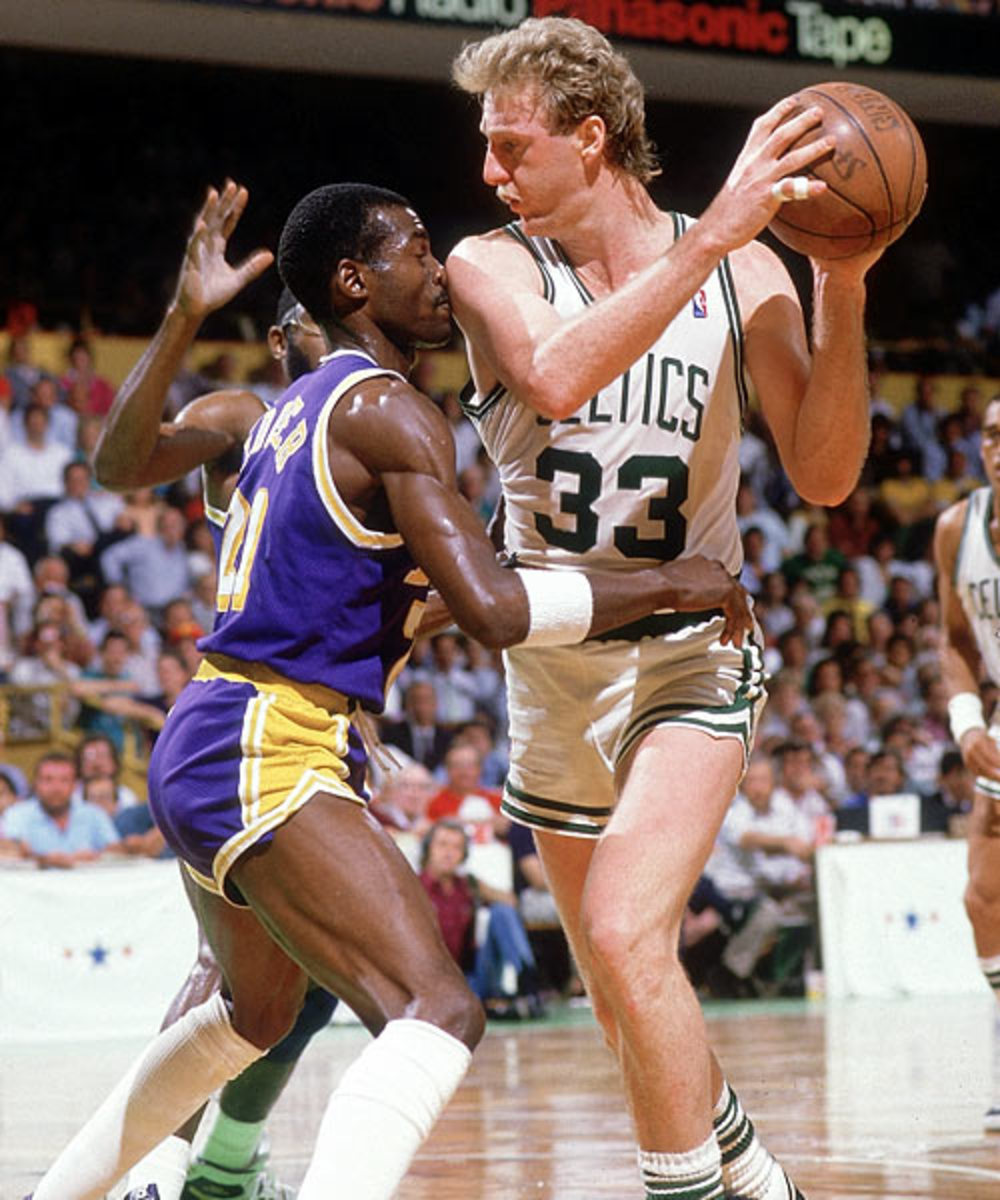
Cooper (pictured guarding Larry Bird) made the All-Defensive team eight times, won the 1987 Defensive Player of the Year award and collected five titles with the Lakers in the 1980s.
Maurice Cheeks, 76ers
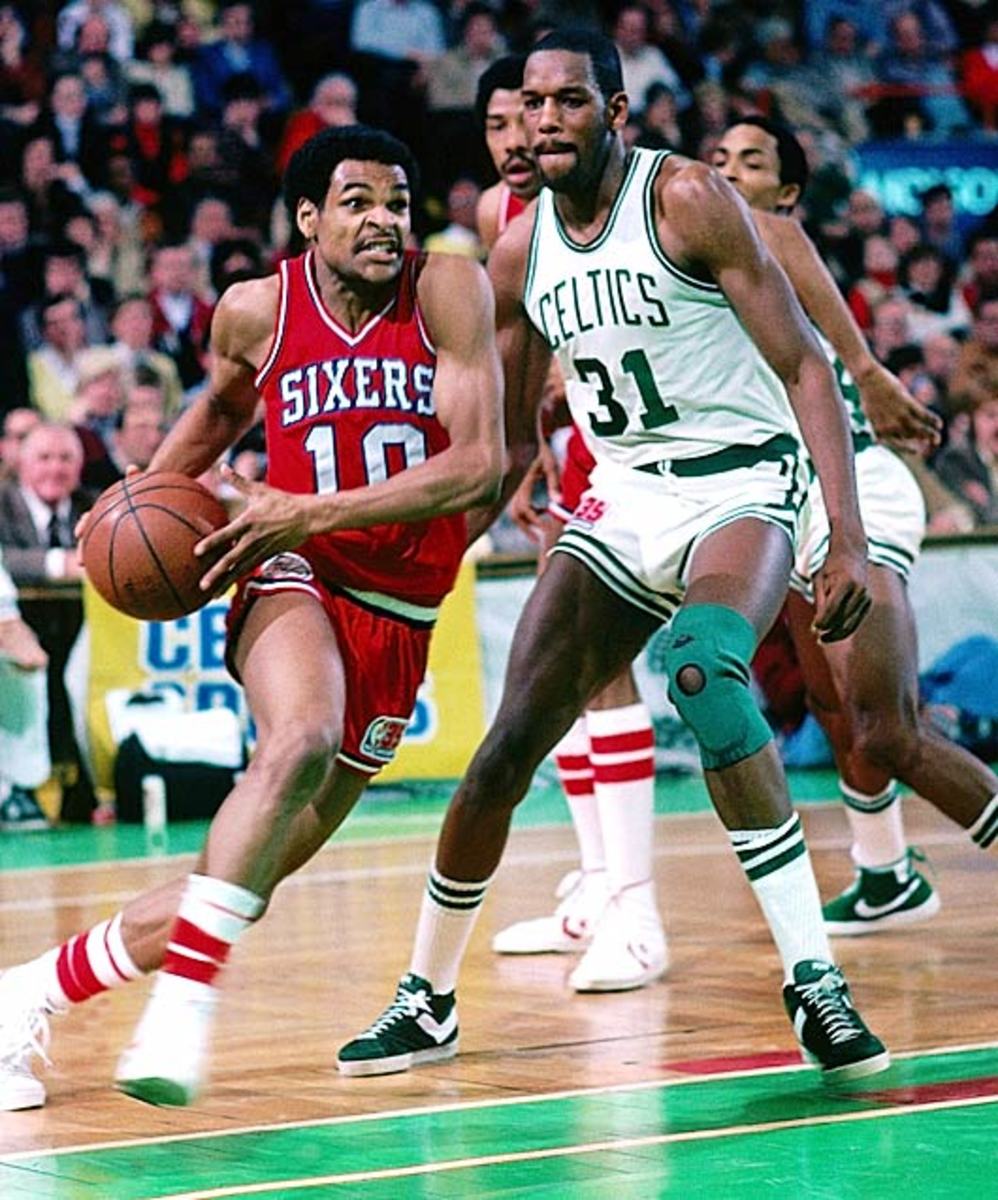
Cheeks was a defensive standout who helped the 76ers win the 1983 title and who remains the franchise's all-time assists leader.
Alex English, Bucks
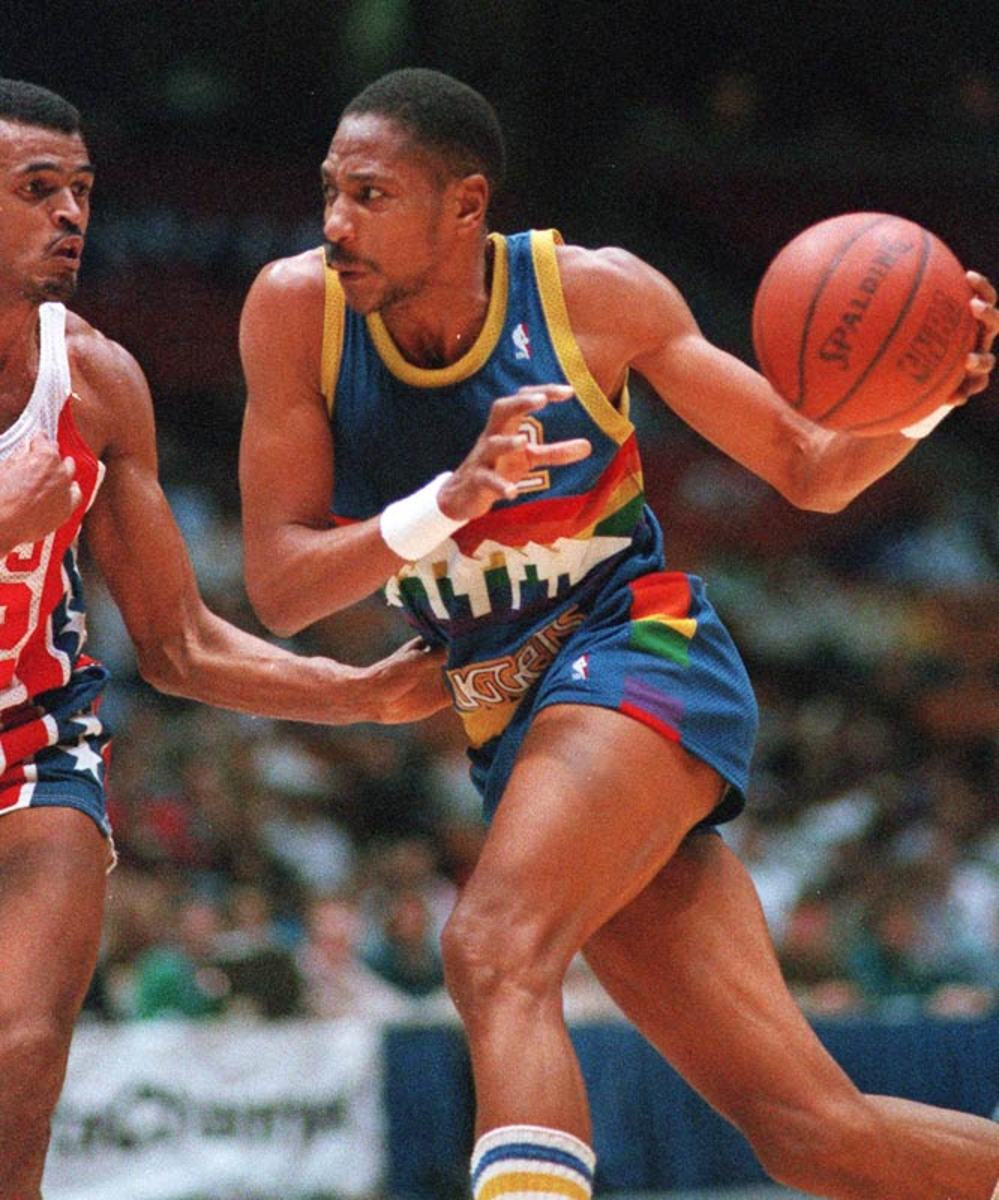
After two forgettable seasons in Milwaukee and two more decent ones in Indiana, English's career took off with a 1980 trade to Denver. The smooth forward averaged at least 23 points in nine consecutive seasons and won the scoring title in 1982-83.
Dennis Johnson, SuperSonics
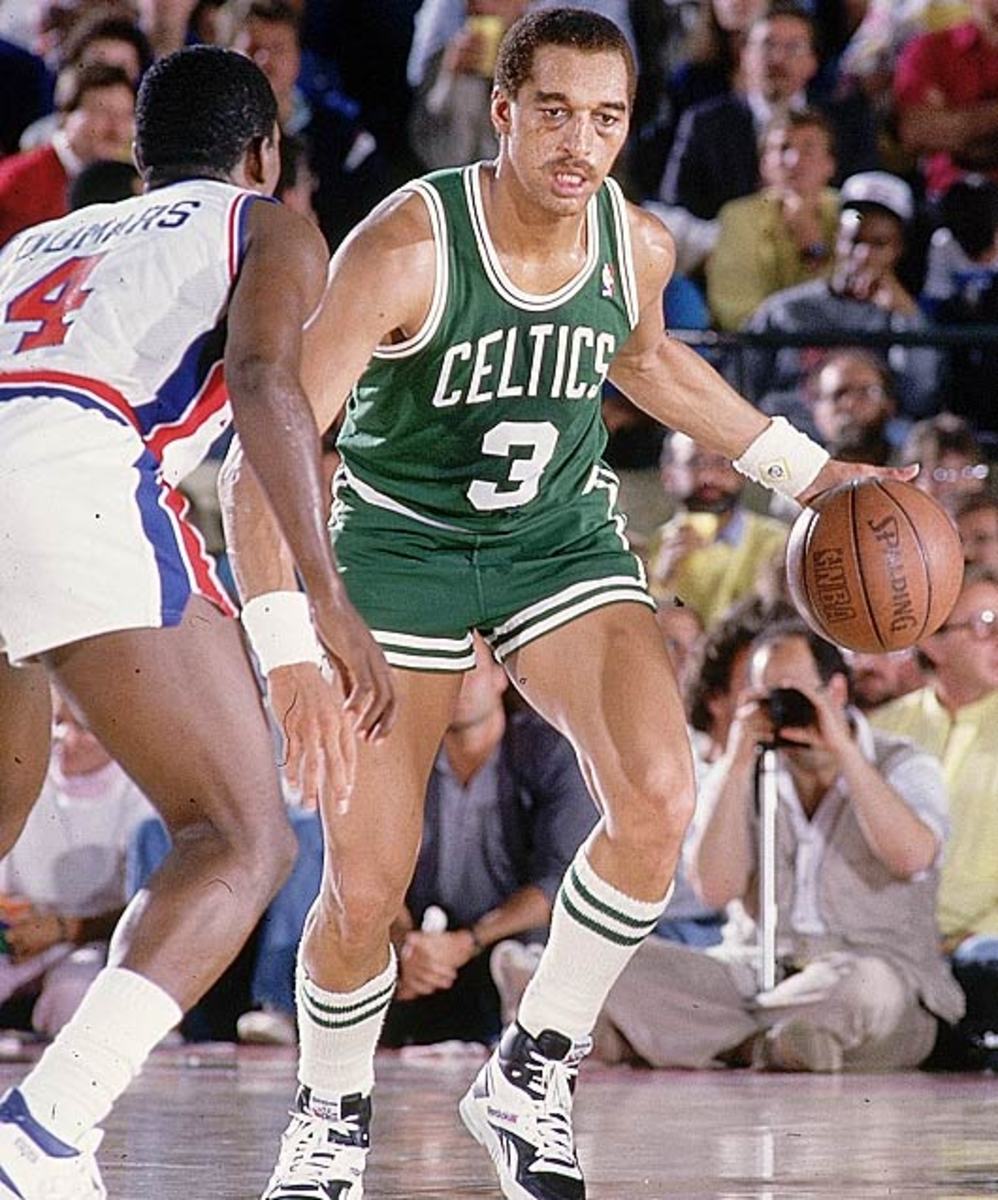
The defensive ace won three championships, one for the SuperSonics (with whom he was Finals MVP in 1979) and two for the Celtics. Johnson, a five-time All-Star, was posthumously inducted into the Hall of Fame in 2010.
Nate Archibald, Cincinnati Royals
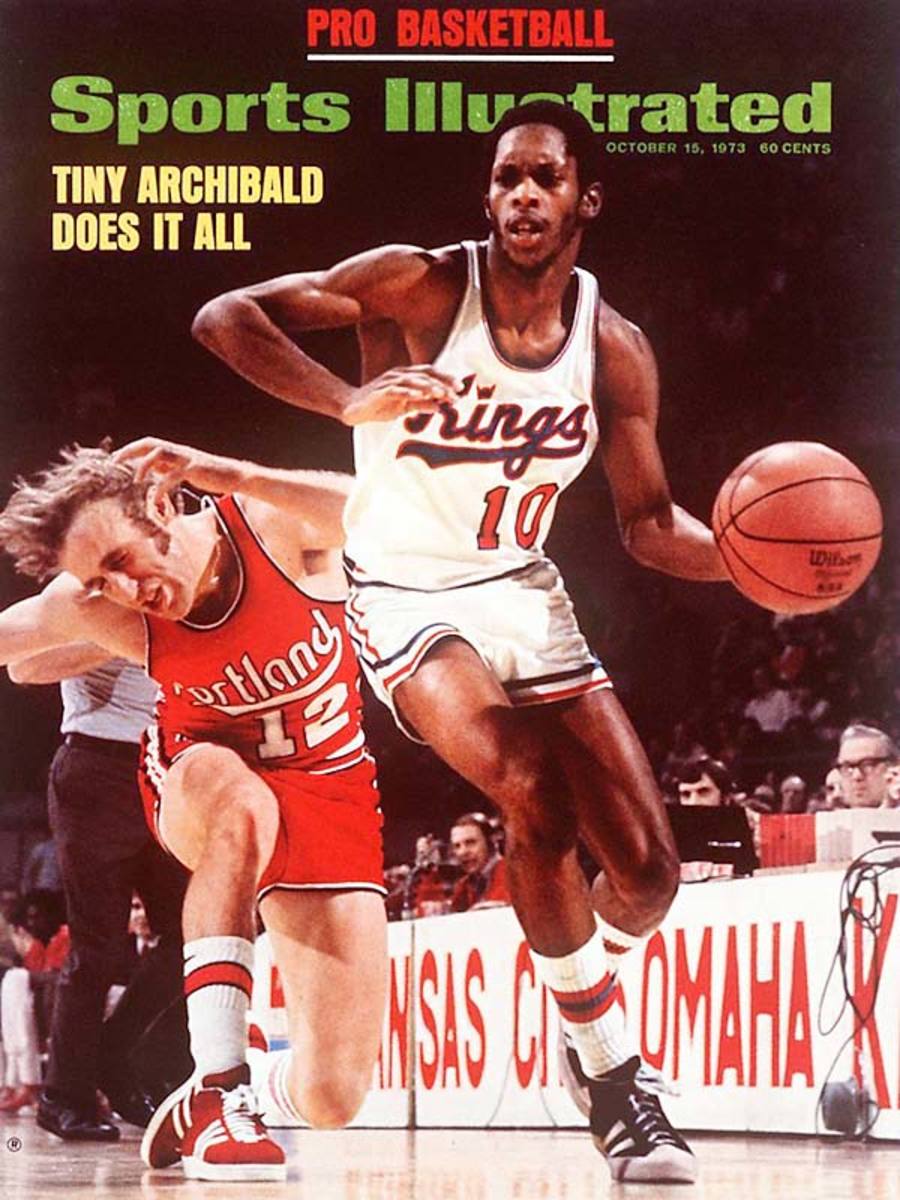
In his third year, Tiny became the only player in history to lead the league in scoring and assists in the same season. He averaged 18.8 points and 7.4 assists in a 14-year Hall of Fame career that included a 1981 title with the Celtics.
Calvin Murphy
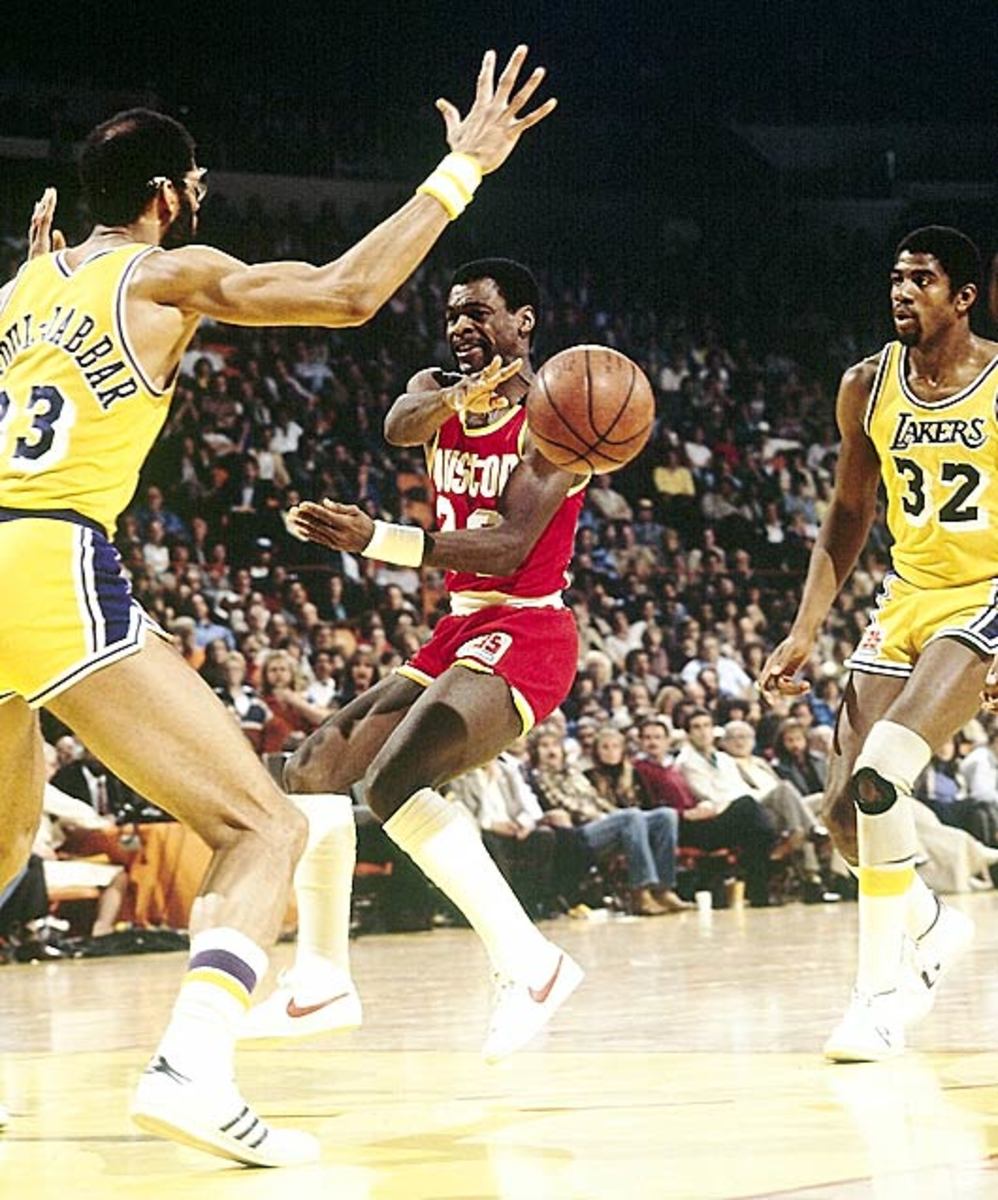
The 5-9 Hall of Fame guard spent his entire 13-year career with the Rockets (who moved from San Diego to Houston after his rookie year), averaging 17.9 points and shooting 89.2 percent at the free-throw line.
Willis Reed, Knicks
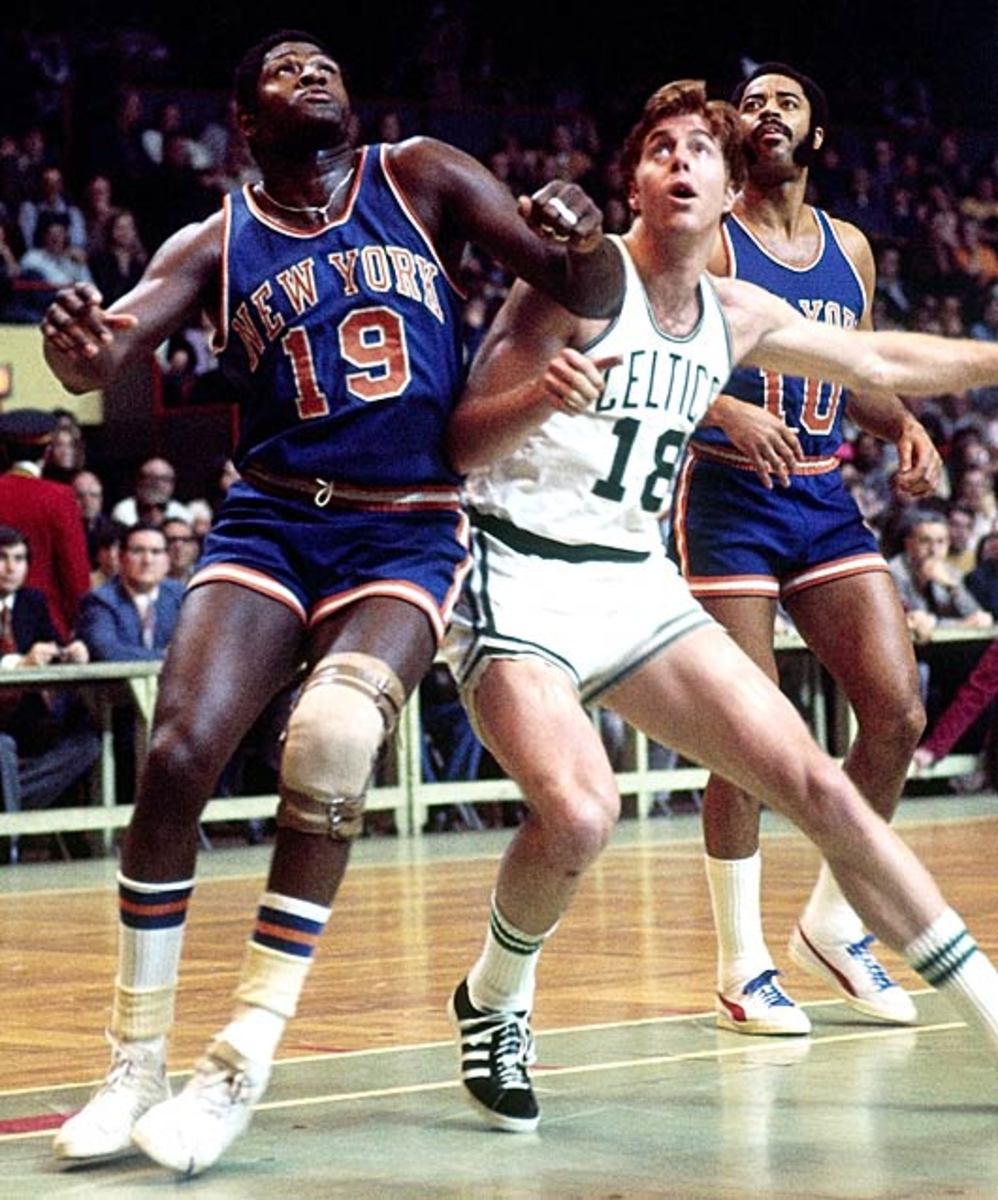
The first pick of the second round (excluding territorial picks), Reed enjoyed the best career of any player in that draft. He was a Rookie of the Year, a regular-season MVP and the Finals MVP in both of the Knicks' championships.
Hal Greer, Syracuse Nationals
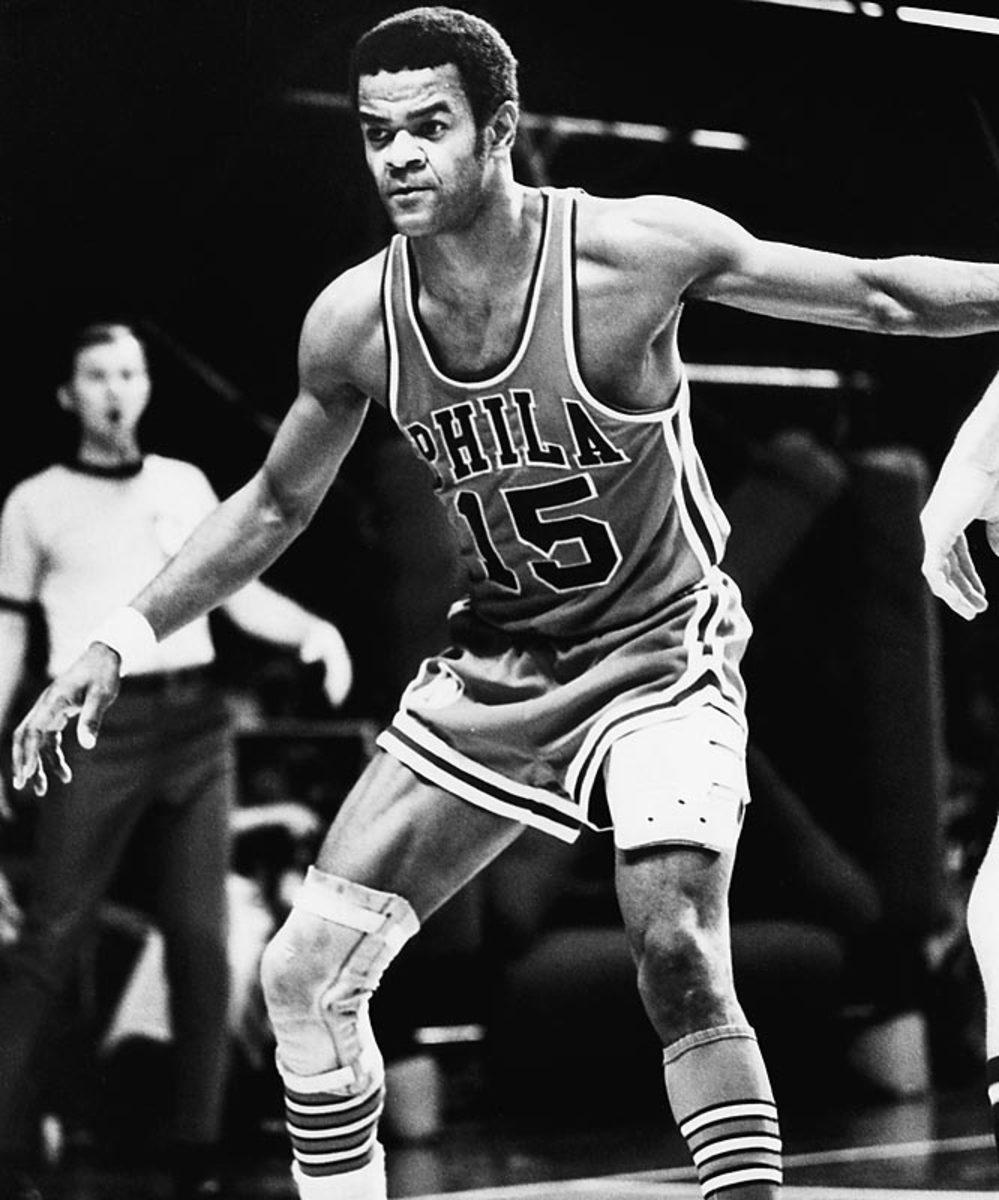
A 10-time All-Star and one of the NBA's 50 greatest players, the 6-foot-2 guard remained with the same franchise his entire 15-year career (the Nationals became the Philadelphia 76ers in 1963). Greer, the franchise's all-time scoring leader, was the first 76er to have his number retired.
